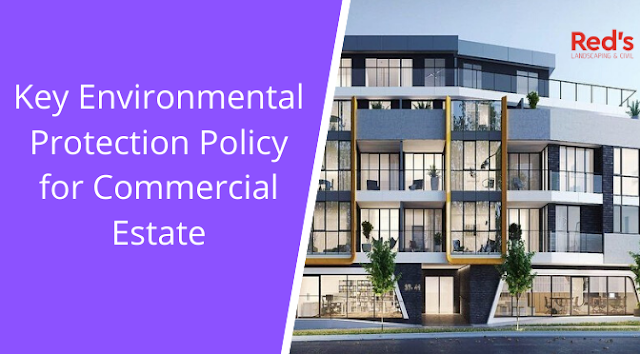Key Environmental Protection Policy for Commercial Estate
Keeping aside the curb appeal and functionality of your commercial estate, another crucial aspect which can’t be overlooked is its environmental protection policy.
Property owners need to emphasise and adopt a well-planned and proactive approach mainly, which identifies controlling waste and pollution and recognising environmental sustainability and maintenance.
To achieve this, as a commercial estate owner; you need to sit down with a notable civil construction contractor in Melbourne and formulate ideas focussing more on waste minimisation, continual improvement, safety and health and optimal environment safeguarding.
Digging Deeper:
Your key environmental protection policy should also comply with the state and federal norms and regulations. It should focus on these following:-
Stating the obvious, construction and demolition activities usually churn up a great deal of industrial waste components.
Some of the Common Ones Include:-
So, schedule an appointment with your trusted contractor and formulate an effective environmental protection policy for your commercial estate.
Property owners need to emphasise and adopt a well-planned and proactive approach mainly, which identifies controlling waste and pollution and recognising environmental sustainability and maintenance.
To achieve this, as a commercial estate owner; you need to sit down with a notable civil construction contractor in Melbourne and formulate ideas focussing more on waste minimisation, continual improvement, safety and health and optimal environment safeguarding.
Digging Deeper:
Your key environmental protection policy should also comply with the state and federal norms and regulations. It should focus on these following:-
- Removing hazardous waste materials (listed in EPA as industrial waste), wastewater and trade wastage (rubbish added to the sewers)
- Diligent handling of hazardous waste and potentially dangerous waste goods
- Reducing noise, land use, air pollution and emission of carbon gases
- Steps should be taken to reduce consumption and recycle waste like, for example, paperwork recycling, and presenting preference to using eco-friendly products.
- Using electrical and lighting systems which label as energy-efficient and using accredited Green Power either partly or as a whole.
- Planning with your commercial landscaping expert in Melbourne to discuss proper irrigation systems to minimise water wastage or loss due to evaporation!
- You as the property owner need to plan with your civil construction contractor on the precise amount of concrete needed
- Coming up with an accurate worksite survey drawing or controlling formwork dimensions
- Evaluating construction drawings for large foundation sections
- Issuing purchasing orders for the appropriate grade and quantity of concrete
- And planning ahead to come up with the use of the leftover concrete
Stating the obvious, construction and demolition activities usually churn up a great deal of industrial waste components.
Some of the Common Ones Include:-
- Normal excavation materials such as rock, dirt and dust
- Contaminated soil and asbestos
- Plasterboard, timber, rotted vegetation, wasted asphalt, concrete, bricks and more
So, schedule an appointment with your trusted contractor and formulate an effective environmental protection policy for your commercial estate.



.png)
Comments
Post a Comment